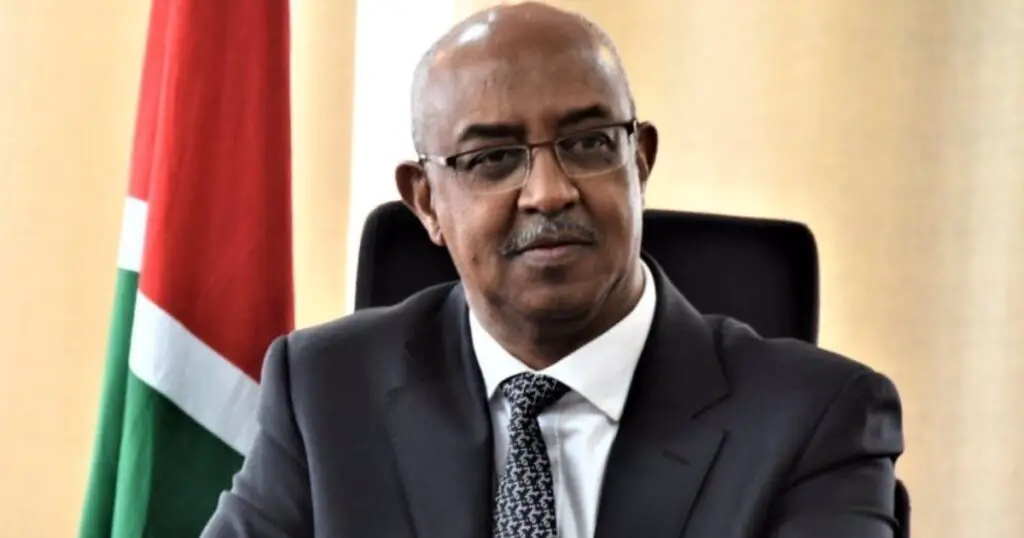- Stakeholders in the health and technology sectors in East Africa have called on governments to strengthen national supply chains following disruptions caused by the COVID-19 pandemic
- Kenya’s Health Chief Administrative Secretary Rashid Aman noted that strong supply chains would be gotten through focusing on the role of data and technology in policy and regulatory frameworks
- Data indicates that healthcare is one of the sectors that was hardest hit by supply chain challenges at the height of the pandemic
Leaders in the health and technology sectors in East Africa have called on governments to strengthen national supply chains following disruptions caused by the COVID-19 pandemic.
Drawn from ministries of health across five East African nations, the experts said the move would enhance the continent’s post-COVID-19 health security systems.
Data indicates that healthcare is one of the sectors that was hardest hit by supply chain challenges at the height of the pandemic.
The experts, who included Kenya’s Health Chief Administrative Secretary (CAS) Rashid Aman noted that strong supply chains would be gotten through focusing on the role of data and technology in policy and regulatory frameworks.
The focus should also be on manufacturing processes and resource mobilisation to enhance national supply chains.
Aman said the continent continues to lag in the adoption and use of technology to manage healthcare supply chains.
He also emphasised the importance of every link in the health supply chain.
“Every link of the health supply chain is of great importance as it ensures that essential vaccines, medicines and healthcare products make it from manufacturing plants to persons who are most vulnerable across the continent.”
According to the PS, healthcare supply chains should be designed in such a way that they can adapt to shifting demands and requirements for routine products and emergency situations such as COVID-19 and other pandemics.
Using technology
Xetova CEO Bramuel Mwalo also urged governments and industry players to leverage technology to mitigate against risk, build efficiencies and resilience.
“Strong supply chains help ensure that essential healthcare products and services including medicines, vaccines and resources make it from the warehouse to the populations when and where they need them,” Mwalo said.
“Every link of the supply chain counts and critically we need to premise these cycles on strong adoption of data and technology,” he added.
Safaricom said its aim is to use using artificial intelligence and big data to power a more proactive, data-driven decision-making process in the health sector.
The tech firm said the move would enhance national consumption-planning for essential healthcare products and their just-in-time delivery to the various healthcare facilities.
The experts spoke at a forum convened by Xetova, Safaricom and the Ministry of Health drew participation in government officials in Rwanda, the DRC, Uganda and Tanzania in Nairobi.
The aim of the forum was to identify opportunities for collaboration between the private sector, public institutions and key stakeholders to redefine access to health care across the continent.
Kenya, South Africa sign agreements on health, migration and tourism
UHC in Kenya
In a related story, The Exchange Africa recently reported that Kenya’s President Uhuru Kenyatta has unveiled the Universal Health Coverage (UHC) national scale-up and called on Kenyans to register for the National Health Insurance Fund (NHIF).
The President said his government was commitment to spreading the benefits of UHC across the country through the development of a focused policy to accelerate its implementation.
“My administration has developed the Universal Healthcare Coverage Policy, covering the period 2020 – 2030, to guide the acceleration of the progress in attaining Universal Health Coverage,” the President said.
Kenya said the COVID-19 pandemic has brought to bear the urgent need for the country to upscale implementation of the UHC.
“Under this pillar, we seek to eradicate the ‘poverty of dignity’ and transition our nation into an era where no Kenyan should be forced to choose between medical bills and other essential needs,” President Kenyatta said.
On UHC, the Head of State said the programme was started in the country in 2013 with the highly acclaimed free maternity programme dubbed “Linda Mama”, which currently benefits over one million mothers annually.
Kenya: President Kenyatta unveils, rolls out Universal Health Coverage
